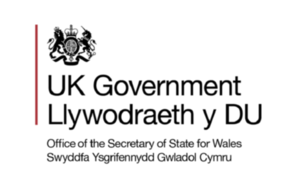Press release: Thousands more households boost work hours and earnings
Welfare reform shows success with record employment and more than 55,000 households moving off the benefit cap and into work.
Families across the UK are experiencing the wider benefits of moving into and progressing in work.
New figures released today (7 February 2019) by the Department for Work and Pensions show that thousands more benefits households are working more, boosting their earnings and are no longer subject to a benefit cap as a result. Other figures out this month show that UK employment is now at a record high.
According to today’s statistics, more than 55,000 households have either moved off the cap from Housing Benefit or Universal Credit by being exempt due to starting a job or increasing their hours or earnings.
Introduced in 2013, the benefit cap incentivises work, including part-time opportunities, as anyone eligible who moves into work and earns over a certain amount becomes exempt from the cap.
The policy also aims to transform families’ futures by showcasing the wider benefits of employment to younger generations. Those with working parents are more likely to achieve higher levels of educational attainment and move into work in adulthood. The latest figures show that at least 190,000 more children are living in a household that moved into work and off the benefit cap.
And this follows separate figures last quarter which reported the number of children living in workless households had fallen by more than 30% since 2010.
Justin Tomlinson, Minister for Family Support, Housing and Child Maintenance said:
It’s really encouraging that the number of people moving off the cap and into work continues to increase in the UK. Our changes to the welfare system have been instrumental in encouraging people to move into employment and improve their lives, while providing the right support for those who need it.
We know that children in working families perform better at school and families moving off the benefit cap are not only reaping the rewards of progressing in work, but are inspiring the next generation to fulfil their potential.
Regionally, the South East has the highest percentage of households under Housing Benefit moving off the benefit cap and into employment (43%).
The new statistics follow the news that the UK employment rate has increased to a new record high of 75.8%, making a difference to homes across the country as wages grow at their fastest rate in almost a decade.
Under the benefit cap, anyone eligible who moves into work and then earns enough for Working Tax Credit (or the equivalent under Universal Credit) becomes exempt.
The estimate of the number of children in households that were capped but went into work is for households that had their Housing Benefit capped only. It is calculated by multiplying the number of children in these households by the number of households. Households with more than 5 children are grouped together, so for this calculation we have assumed that there are 6 children in these households.
There are 140,000 Housing Benefit households that are no longer subject to the benefit cap, with 55,000 of these becoming exempt from the cap due to starting work or increasing their hours.
9,900 Universal Credit households are no longer subject to the cap with more than 2,400 now exempt due to increased earnings through employment since October 2016 .
The percentage of households under Housing Benefit moving off the benefit cap and into employment is calculated by taking the number of households with an open Working Tax Credit claim as a percentage of the total off flows for each region. These figures are available in Table 4 of the published ODS tables.
Media enquiries for this press release – 020 3267 5144
Follow DWP on:



